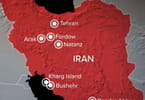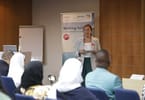DUBAI (eTN) – His Highness Sheikh Sultan bin Tahnoun Al Nahyan, chairman of Abu Dhabi Tourism Authority (ADTA), has called for close public-private sectors collaboration to sustain global growth of travel and tourism industry, a key factor behind Abu Dhabi’s awe-inspiring tourism development drive.
In his widely-appreciated keynote address to the global travel and tourism industry decision-makers at the 8th Global Travel and Tourism Summit in Dubai today (April 21), he said the collaborative approach is a key facet of Abu Dhabi Tourism Authority’s five-year strategy plan for the year 2008-2012 unveiled in the UAE Capital City.
The three-day summit has been organized by the World Travel and Tourism Council (WTTC), a forum for business leaders in the travel and tourism industry.
With chief executives of over one hundred of the world’s leading travel and tourism companies as its members, the WTTC works to raise awareness of travel &andtourism as one of the world’s largest industries, employing approximately 231 million people and generating over 10.4 percent of world GDP.
Kemgbe mmalite ya na 1990, a WTTC has been working with governments to raise awareness of one of the world’s most important contributors to the economy and publishes reports on 174 countries worldwide, highlighting the impact of travel and tourism on jobs and the economy.
H.H Sheikh Sultan said: “The WTTC predicts a four percent average annual growth for the global travel and tourism industry over the next decade. While this projection is cause for industry optimism, the need to adopt a balanced and inclusive approach to growth management is more imperative. Just as travel and tourism growth has contributed to the world becoming smaller, the economic, social and environmental stakes have become higher. As such, sustained global growth of travel and tourism will be contingent on close collaboration amongst governments, stakeholders and participants in three key areas – economic equitability, human resources development and environmental preservation.”
This collaborative approach is a key facet of Abu Dhabi Tourism Authority’s five-year plan, said H.H. Sheikh Sultan who is also the Chairman of Tourism Development and Investment Company (TDIC) and Abu Dhabi Authority for Culture and Heritage.
He said the plan emerged after an extensive assessment and planning process carried out in close cooperation with the General Secretariat of the Executive Council as part of the strategic plan for the Government of Abu Dhabi. It underscores the need for active partnership between public and private stakeholders to meet the revised objectives, gaining wider public support and offering a unique and upgraded experience to the visitors.
The ADTA has upgraded its tourist arrivals forecasts for the next five years and now expect to receive more than 2.7 million hotel guests by the end of 2012, about 300,000 more than originally envisaged. It also hope to have in place 25,000 hotel rooms by 2012, 4000 more than it initially expected.
The hotel guests in Abu Dhabi grew by approximately eight per cent in 2007 with 1,450,000 arrivals compared to 1,345,000 in 2006. The emirate continues to focus on a product base of beach, environment, culture, sports, adventure and business tourism.
He said the travel and tourism as a collective industry, more than any other, engenders greater interactivity with other economic sectors and facets of society. The UN World Travel Organization reports that close to a billon international trips were taken in 2006 alone; whilst accordingly to the WTTC, travel and tourism today accounts for more than 10 percent of world GDP and generates employment for more than 200 million people globally.
“The scale and diversity of our industry has also evolved considerably from the earliest forms of cultural and heritage tourism. We may now add business tourism, special events tourism, health tourism, education tourism, beach tourism, amongst many others,” remarked H.H Sheikh Sultan.
He said the intensified globalization and corresponding rise in global incomes have made travel and tourism far more accessible to more people which fueled this industry’s phenomenal growth.
“The travel and tourism’s socio-economic and environmental impacts are far more pronounced today. Indeed, global industry growth has invoked a greater sense of accountability and responsibility on the part of governments, stakeholders and participants towards its economic, social and environmental sustainability,” H.H Sheikh Sultan said.
He thanked the Dubai government for its efforts in hosting the first-ever WTTC summit in the UAE and its overall endeavors as an advocate and promoter of the Middle East’s tourism interests – a campaign to which Abu Dhabi began to lend its voice with the creation, almost four years ago, of the Abu Dhabi Tourism Authority (ADTA).
eTurboNews is one of the official media partners for this edition of the WTTC nzuko.






















